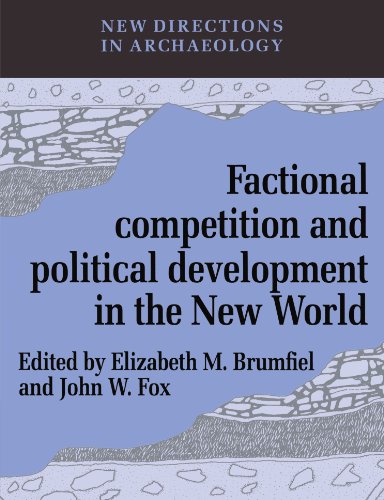Cambridge University Press
Factional Competition and Political Development in the New World (Revised)
Regular price
$14.95 USD
Regular price
Sale price
$14.95 USD
Unit price
per
Shipping calculated at checkout.
Couldn't load pickup availability
Title: Factional Competition and Political Development in the New World (Revised)
Author: Elizabeth M Brumfiel
ISBN: 9780521545846
Publisher: Cambridge University Press
Published: 2003
Binding: Paperback
Language: English
Condition: Used: Good
Moderate edge wear. Binding good. May have marking in text. We sometimes source from libraries. We ship in recyclable American-made mailers. 100% money-back guarantee on all orders.
K 1452008
Publisher Description:
Factionalism is an important force of social transformation, and this volume examines how factional competition in the kinship and political structures in ancient New World societies led to the development of chiefdoms, states and empires. The case studies, from a range of New World societies, represent all levels of non-egalitarian societies and a wide variety of ecological settings in the New World. They document the effects of factionalism on the structure of particular polities: for example, how it might have led to the growth of social inequality, or to changing patterns of chiefly authority, or to state formation and expansion, or institutional specialisation. The work is a creative and substantial contribution to our understanding of the political dynamics in early state society, and will interest archaeologists, anthropologists, political scientists and historians.
Author: Elizabeth M Brumfiel
ISBN: 9780521545846
Publisher: Cambridge University Press
Published: 2003
Binding: Paperback
Language: English
Condition: Used: Good
Moderate edge wear. Binding good. May have marking in text. We sometimes source from libraries. We ship in recyclable American-made mailers. 100% money-back guarantee on all orders.
K 1452008
Publisher Description:
Factionalism is an important force of social transformation, and this volume examines how factional competition in the kinship and political structures in ancient New World societies led to the development of chiefdoms, states and empires. The case studies, from a range of New World societies, represent all levels of non-egalitarian societies and a wide variety of ecological settings in the New World. They document the effects of factionalism on the structure of particular polities: for example, how it might have led to the growth of social inequality, or to changing patterns of chiefly authority, or to state formation and expansion, or institutional specialisation. The work is a creative and substantial contribution to our understanding of the political dynamics in early state society, and will interest archaeologists, anthropologists, political scientists and historians.

